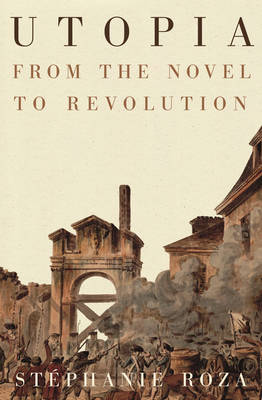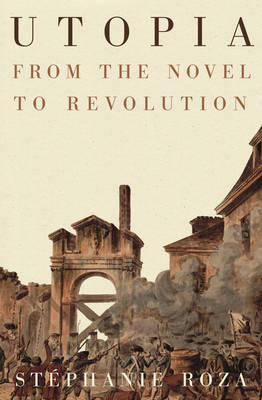
- Afhalen na 1 uur in een winkel met voorraad
- Gratis thuislevering in België vanaf € 30
- Ruim aanbod met 7 miljoen producten
- Afhalen na 1 uur in een winkel met voorraad
- Gratis thuislevering in België vanaf € 30
- Ruim aanbod met 7 miljoen producten
Zoeken
Omschrijving
THE TRANSFORMATION OF UTOPIA IN THE FRENCH REVOLUTION, FROM A ROMANTIC IDEAL TO A POLITICAL OBJECTIVE Until the Age of Enlightenment, utopia was a popular literary genre, but without concrete political effects. However, in the decades leading up to 1789, its status gradually changed from an entertaining thought experiment to a socialist project. Imagining the ideal city took on the task of articulating revolutionary transformation of society towards equality and social justice. In Utopia, Stéphanie Roza explores the nascent ideal of a community of property and labour, not yet called communism, and the thinkers who engaged with it in the lead-up to the French Revolution. These philosophers included Étienne-Gabriel Morelly, a fierce critic of private property and the mysterious author of the Code de la Nature; the Abbé de Mably, a radical republican and interlocutor of Rousseau; and Gracchus Babeuf, who, from the 1780s onwards, defended the natural right to subsistence and dreamed of a more fraternal world. Together, they laid the foundations for modern socialist movements. In the crucible of the French Revolution, 'real equality' became the goal of a handful of conspirators gathered around Babeuf, who had meanwhile become the 'tribune of the people'. The Conspiracy of Equals was considered by Marx to be 'the first active communist party' the hopes and questions that ran through the group prefigured those of the militants of later periods, including today.
Specificaties
Betrokkenen
- Auteur(s):
- Uitgeverij:
Inhoud
- Aantal bladzijden:
- 384
- Taal:
- Engels
Eigenschappen
- Productcode (EAN):
- 9781839767654
- Verschijningsdatum:
- 1/07/2025
- Uitvoering:
- Paperback
- Formaat:
- Trade paperback (VS)
- Afmetingen:
- 152 mm x 234 mm
- Gewicht:
- 408 g

Alleen bij Standaard Boekhandel
+ 118 punten op je klantenkaart van Standaard Boekhandel
Beoordelingen
We publiceren alleen reviews die voldoen aan de voorwaarden voor reviews. Bekijk onze voorwaarden voor reviews.








